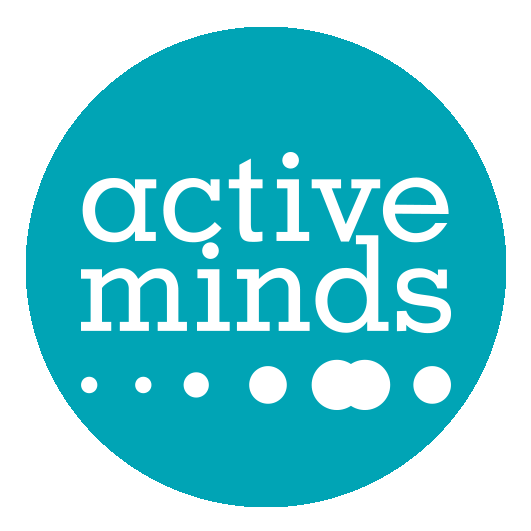Sarah Berendt is currently studying social work at Lourdes University in Sylvania, OH. She is founder and president of Active Minds at Lourdes University and a member of the Student Advisory Committee.
It was the second time ever that I was sitting across from a therapist; I was lost, confused, and terrified. She handed me two fairly large packets of paper, the top of one said Obsessive Compulsive Disorder and the other read Bipolar Disorder.
There were two possibilities, two mental illnesses, two definitions of what my life could mean. While reading the packet on Bipolar Disorder I began to cry: long periods of depression followed by periods of high energy, lack of control, racing thoughts, trouble concentrating and remembering, thinking of or attempting suicide — this piece of paper was describing my life.
A few months later, the diagnosis was confirmed by a psychiatrist and my journey had begun.
I was devastated to receive the diagnosis of Bipolar. I had truly believed that my life was now over, just as it had been beginning. I was sixteen years old and I felt like my future had been lost. Growing up, I believed that a mental illness meant failure, that someone who had problems couldn’t be successful in life.
After years of therapy, I began to change my outlook and my whole life changed. I began to tell myself that I was going to prove society wrong, I could have a mental illness and I could be successful. I began reading books and memoirs about Bipolar and the authors soon became my heroes, I was determined that I would do something important with my life.
Every day is a battle between my emotions and my intellect. I question do I get out of bed, do I take my medications, do I eat breakfast, do I go to class and work? Every day is processes of talking myself through everything I need to do in order to survive — but every day I remind myself that I have a purpose in life. My passion of mental health advocacy has become my purpose and I have found my own recovery in the process of helping others.
“Learn from yesterday, live for today, hope for tomorrow.” This quote by Albert Einstein was one of many that I painted on my bedroom walls during a manic episode.
When it comes to having a mental illness it is imperative that you learn from yesterday, live for today, and hope for tomorrow. I have learned many lessons along my road to recovery.
I now know, after I attempted to cut off all of my hair and dye it blue, that I am in no way a cosmetologist. I have learned that just because I spend hundreds of dollars on new art supplies doesn’t make me a better artist.
I know that no matter how many times the voices in my head tell me that I’m ugly, it’s only true if I give them power to make me believe that it is. I’ve learned that no matter how much I pick at my skin, hurt, or starve myself I will never be the perfect friend, daughter, or student.
Most importantly I have learned that my illness and my addictions don’t define who I am. They have played a substantial role in my life and my successes and failures, but I am so much more than Bipolar. I am Sarah and that, to me, is the most powerful lesson that I ever could have learned.
For now, I will live for today with the healthy mind and body that I have worked so hard to achieve. As for the future, I will hope that I will continue to make a difference for those who are travelling the same path as I have and I will continue to live my life, as strong as I have ever been.



